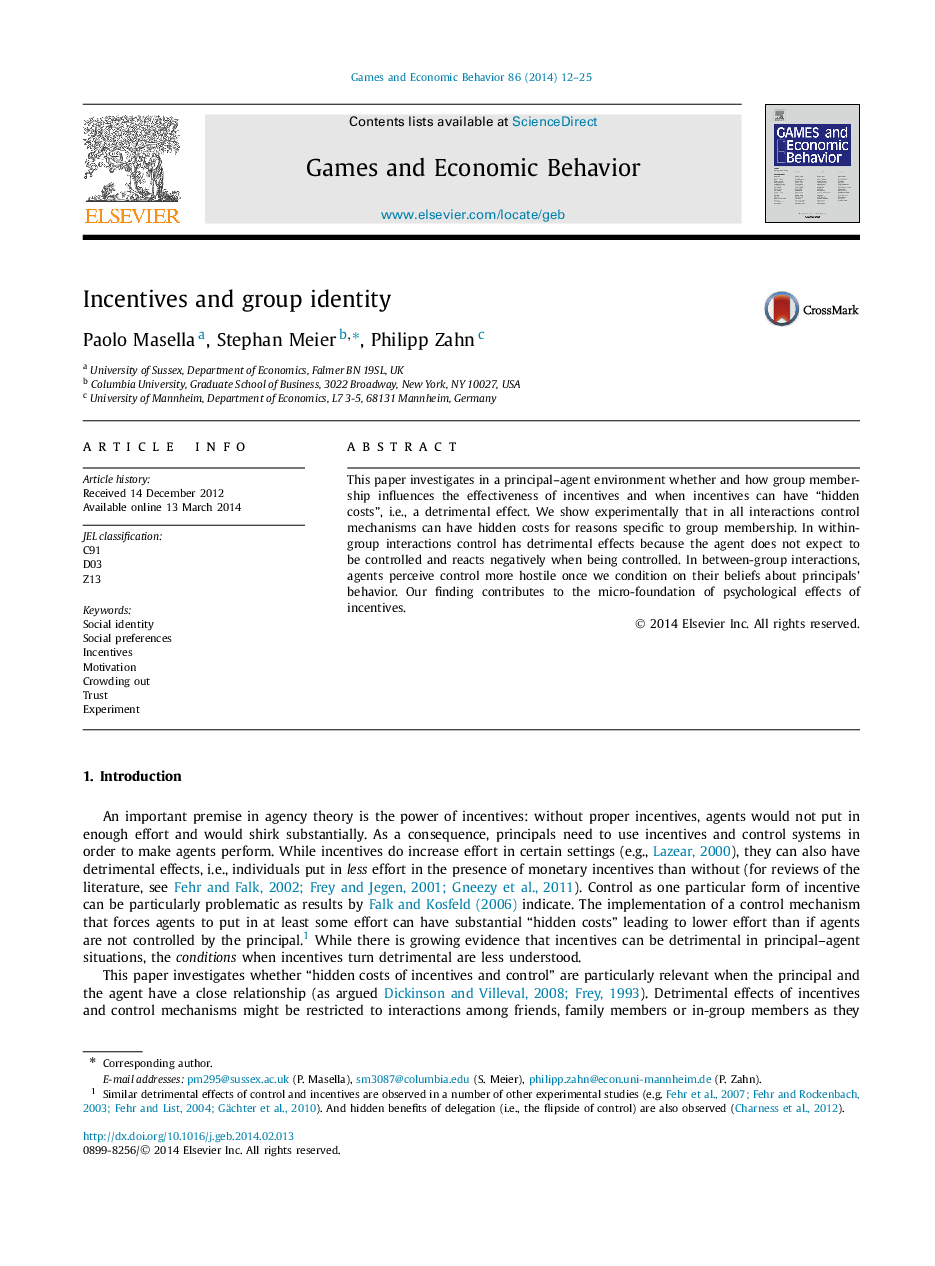| Article ID | Journal | Published Year | Pages | File Type |
|---|---|---|---|---|
| 5071691 | Games and Economic Behavior | 2014 | 14 Pages |
Abstract
This paper investigates in a principal-agent environment whether and how group membership influences the effectiveness of incentives and when incentives can have “hidden costs”, i.e., a detrimental effect. We show experimentally that in all interactions control mechanisms can have hidden costs for reasons specific to group membership. In within-group interactions control has detrimental effects because the agent does not expect to be controlled and reacts negatively when being controlled. In between-group interactions, agents perceive control more hostile once we condition on their beliefs about principals' behavior. Our finding contributes to the micro-foundation of psychological effects of incentives.
Related Topics
Social Sciences and Humanities
Economics, Econometrics and Finance
Economics and Econometrics
Authors
Paolo Masella, Stephan Meier, Philipp Zahn,
